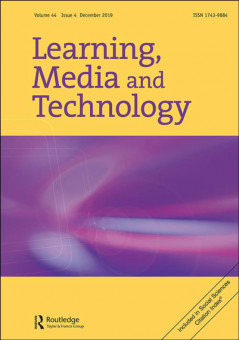Appel à communication
In recent years, scholars have called for greater attention to the history of educational technology, noting the influence of past developments on contemporary communication practices, sociotechnical learning arrangements, and relations of power. New books have addressed how technologies that have long been envisioned as a means to improve education have in fact deepened racial and socioeconomic inequality (Cain, 2021), contributed to a development imaginary (Ames, 2019), reproduced cultural stereotypes and dominant ideology (Good, 2020) and infused school lessons with the logics of US-American behaviourism (Watters, 2021). While these works highlight the embeddedness of educational technology within the broader processes and unequal power structures of Western-led industrialization, globalization, and digitalization, they also signal a need to expand beyond a Euro/US-American focus and turn towards global, local, and alternative practices of educational technology production, mobilization, and use.
This special issue aims to decentre Western developments in educational technology by attending to its historical and enduring entanglements with international power relations, community activism, and grassroots movements under and against colonialism, racism, classism, ableism, and other forms of structural inequality. We welcome papers that critically reflect on “Eurocentrism” and “US-centrism” and the “one way” reception of Western narratives, technologies, and “experts”, as well as analyses of global flows and counterflows of audio-visual and computational media.
This could include perspectives that move past nation studies and official educational institutions and curricula, recognizing how efforts to involve information technologies in teaching and learning have been associated with diasporic and transnational struggles for civil rights, representation, and resistance. We particularly seek contributions on indigenous media and identity (Carlson & Frazer, 2021). We also welcome macro-micro analysis, studies on the very local or developments in small-scale settings such as villages, neighbourhoods, and individual schools, as well as studies exploring how individuals and communities have mobilized media to transform knowledge or reform their school environments.
Contributions may include topics such as:
• Global-local relationships, connected histories, the very local
• Non-Western epistemologies, racial artifacts
• Critical inquiries into “progress” vs. “backwardness”
• Indigenous communities’ educational media use
• Grassroots activism by teachers and students beyond national/federal regulation and/or as part of the neoliberal consumer turn
• “Techlash” in education, resistance, failure, disconnection, and non-use
• Digital divides, inequalities, and asymmetries of access
• Student voices, student makers of classroom media, and “disruptive” uses of technology in schools
Submission Instructions
Interested authors are invited to send an abstract for the special issue (max 500 words) by email to both Katie D. Good & Barbara Hof by 1 April 2022:
• goodkd@miamioh.edu
• barbara.hof@ife.uzh.ch
Invitations to submit a full manuscript will be sent 8 April 2022, with draft submission to the editors by 23 September 2022. Authors will then be invited to shortly comment on a peer’s manuscript as part of an online author workshop held one week later, on 30 September 2022. Full manuscript submission for blind peer review due 11 November 2022. (Please remember to select ‘special issue title’ when submitting your full manuscript to ScholarOne).
Instructions for authors
Organisé par
Special Issue Editor(s): Katie D. Good, Miami University, Barbara Hof, University of Zurich
Informations supplémentaires sur l'événement
Coûts de participation
CHF 0.00
